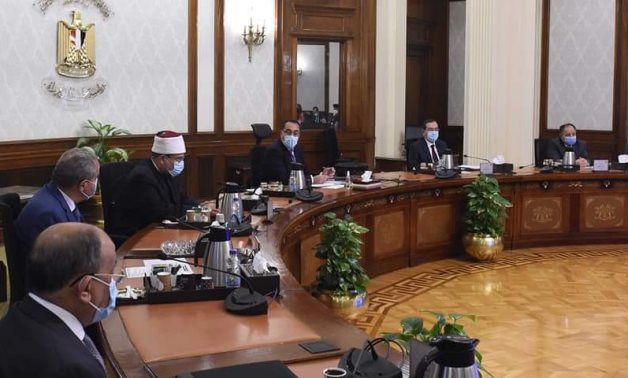
Egyptian Cabinet holds the third meeting for the national committee to face the Ukraine crisis’s impact on strategic goods - Cabinet
CAIRO – 28 March 2022: Egypt seeks to collect up to 6 million tons of local wheat from farmers this season, which starts in April, Minister of Supply Ali Moselhi said on Monday in the third meeting for the national committee to face the Ukraine crisis’s impact on strategic goods.
During the meeting, chaired by Prime Minister Mostafa Madbouly, Moselhi said the Ministry of Supply has secured more than 400 points to receive local wheat this year, affirming that there are enough strategic capacities to receive this quantity of local wheat.
Earlier in March, Moselhi said that Egypt’s strategic reserve of wheat is sufficient to last the country through 3.4 months.
Moselhi said his ministry targets to procure 6 million tons of wheat from local farmers during the April harvest season, adding that LE 36 billion have been allocated for this purpose.
Egypt’s Cabinet earlier announced setting the additional incentives ordered earlier by President Abdel Fattah El-Sisi to encourage farmers to hand their local wheat to the state at LE 65 per ardeb.
As per the directives, price of wheat ardeb, which is equal to 150 kilograms, will be LE 865, 875, and 885 for wheat with purity percentage of 22.5, 23, and 23.5 respectively.
Egypt has already raised the price of ardeb from LE 710 to nearly LE 810 last year to encourage farmers to supply local wheat.
Ministers of Supply and Internal Trade, Finance and Agriculture issued a decree in March to start the season of supplying locally produced wheat for 2022 on April 1 instead of April 15.
Egypt is the largest importers of wheat in the world, especially from Ukraine and Russia. Due to the military escalation in Ukraine by Russian troops, wheat supply to Egypt has been affected and caused an increase of the price of the unsubsidized bread by 25 piasters per one loaf.
Sisi has instructed the government to set a fixed price for the unsubsidized loaf of bread putting an end to its random increase.
The president urged the government to study the cost of production per loaf, and accordingly designate the selling price. That is in tandem with charging the Ministry of Supply and Internal Trade with providing the necessary flour to bakeries to inhibit the fluctuation of the cost.
The president also stressed that supply police and inspectors must ensure that the decision is implemented by merchants, according to a statement by the presidency.
Comments
Leave a Comment